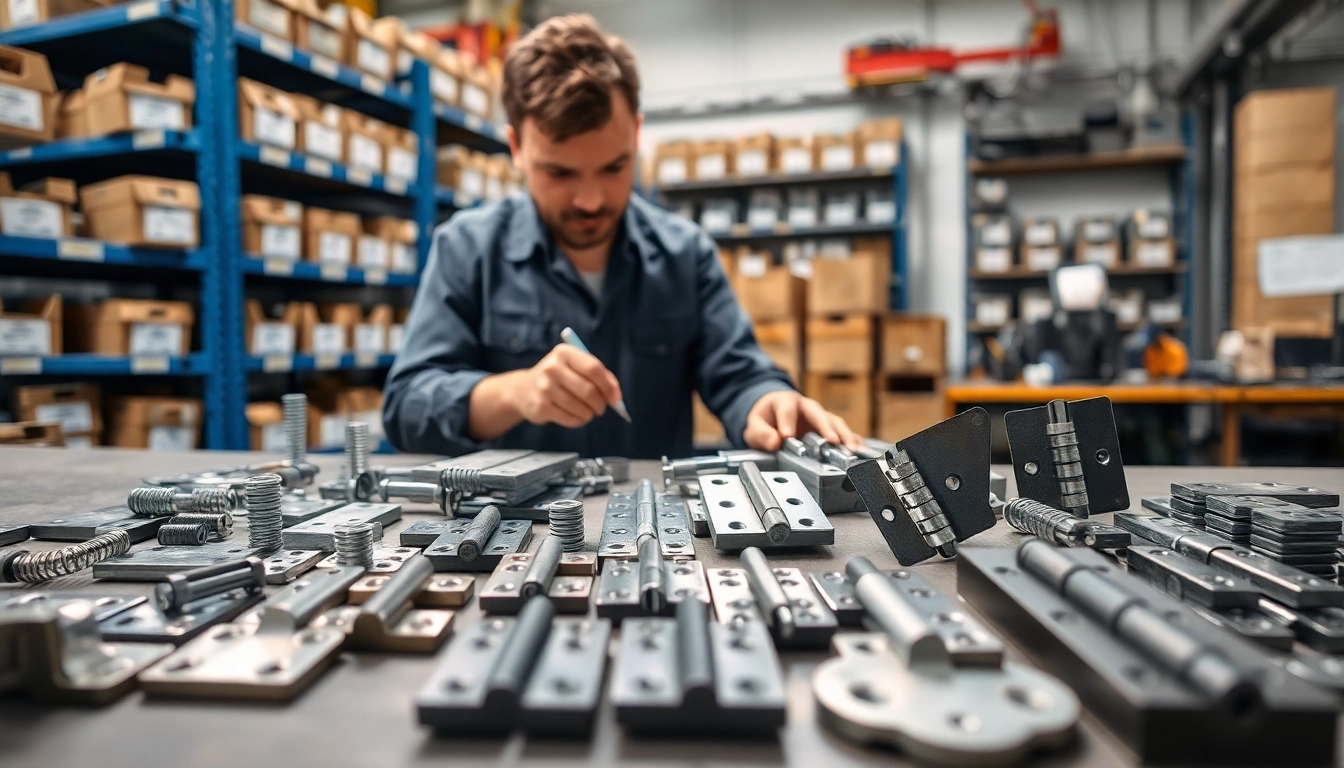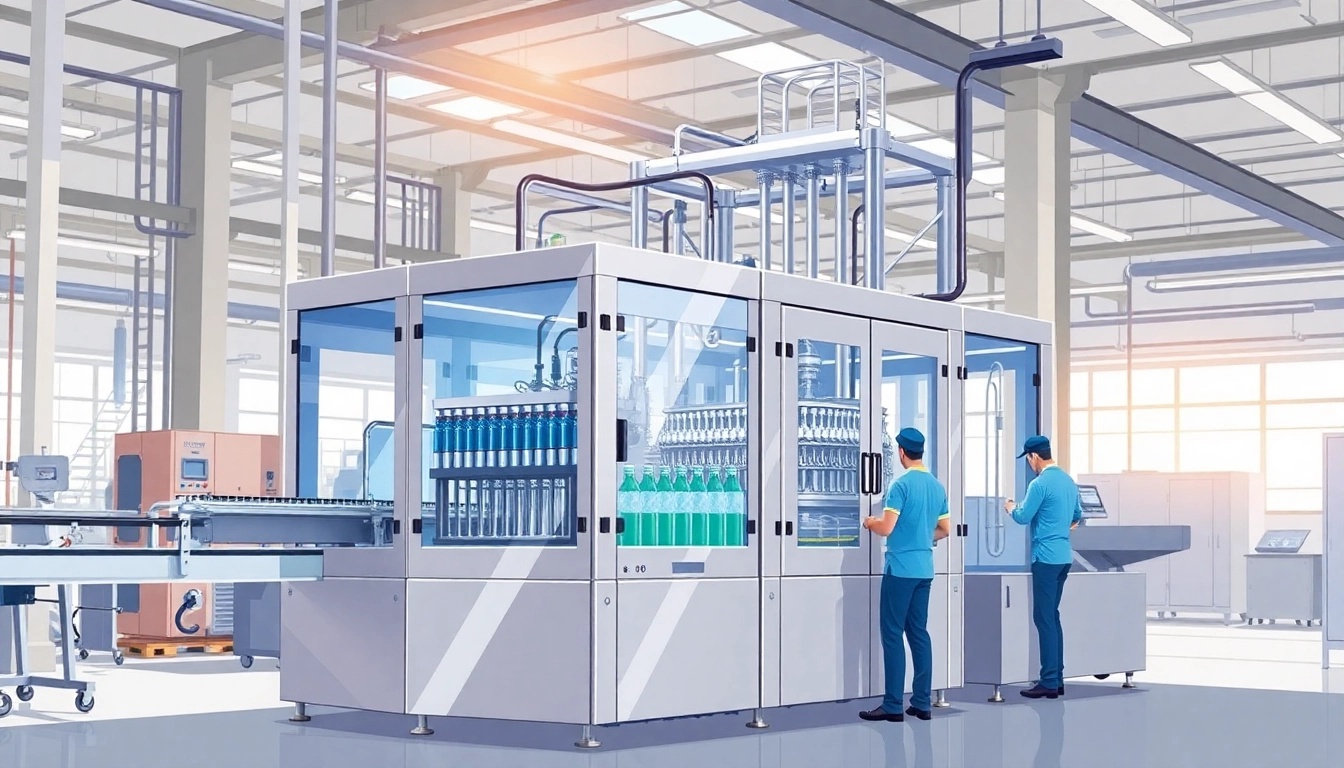Understanding the Role of a Hinge Supplier
What is a Hinge Supplier?
A hinge supplier is a specialized business that manufactures and distributes hinges, which are mechanical devices used to connect two objects, typically allowing them to pivot or rotate relative to one another. Common applications include doors, windows, cabinets, and various machinery components. Hinge suppliers play a crucial role in the construction, renovation, and maintenance sectors by providing a variety of hinge types, sizes, and materials tailored to meet diverse industry needs. Whether for residential use or large-scale industrial projects, establishing a relationship with a reliable Hinge Supplier is essential for ensuring quality and compatibility.
Importance of Quality in Hinge Supply
Quality hinges are vital for the reliability and functionality of any installation. Poorly made hinges can lead to increased maintenance costs, premature wear and tear, and even safety hazards. High-quality hinges ensure durability, proper function, and longevity, which are critical factors in environments exposed to frequent use and stress. A reputable hinge supplier prioritizes rigorous quality assurance processes and adheres to industry standards, ensuring that their products meet or exceed customer expectations.
Common Types of Hinges Offered by Suppliers
Hinge suppliers offer a plethora of hinge types, each designed for specific applications. Some of the most common types include:
- Butt Hinges: Widely used for doors and gates, butt hinges consist of two rectangular plates and a pin in the center.
- Continuous Hinges: Also known as piano hinges, these provide uniform support along the entire length, ideal for long doors and heavy applications.
- Spring Hinges: Equipped with a spring mechanism, these automatically pull doors closed for enhanced convenience and security.
- Concealed Hinges: These are hidden from view when the door is closed, offering a clean aesthetic in cabinetry and furniture applications.
- Industrial Hinges: Designed for heavy-duty use, industrial hinges are robust and made from high-strength materials to withstand extreme conditions.
Key Features to Look for in a Hinge Supplier
Durability and Material Considerations
When selecting a hinge supplier, it’s essential to verify the durability and material composition of their products. Common materials used in hinge fabrication include:
- Stainless Steel: Known for its corrosion resistance and strength, making it suitable for exterior and marine applications.
- Brass: Offers a classic look and is resistant to corrosion, ideal for decorative hinges.
- Aluminum: Lightweight and non-corrosive, making it a favorite for aircraft and automotive applications.
- Plastic: Utilized in low-stress applications where weight savings are crucial.
Choosing hinges made from the right materials is critical for ensuring they meet the functional requirements of specific environments while also achieving desired aesthetic goals.
Customization Options Available
Many projects require hinges that cater to specific dimensions or unique functionalities. A good hinge supplier should offer customization options, allowing clients to select hinge types according to factors such as size, finish, and operation mechanism. This adaptability is crucial for commercial applications where architectural requirements are diverse and need bespoke solutions.
Quality Assurance and Standards Compliance
All hinges should meet certain standards to ensure safety and reliability. Reputable hinge suppliers will comply with international quality standards such as ISO (International Organization for Standardization) and ANSI (American National Standards Institute). Verification of these standards guarantees that the product is engineered and tested for optimal performance and safety, minimizing risks associated with hinge failure.
How to Choose the Right Hinge Supplier for Your Needs
Assessment of Supplier Capabilities
Choosing the right hinge supplier involves a thorough assessment of their capabilities. Evaluate their experience in the industry, the range of products they offer, and their ability to fulfill orders efficiently. Suppliers who have been in the business for many years often possess more knowledge about product performance and can provide pertinent insight into what may work best for your specific application.
Evaluating Customer Support and Service
Exceptional customer support can make a significant difference in the hinge sourcing process. This includes reliable communication throughout the project lifecycle, post-purchase support, and a willingness to assist with any product-related issues or queries. A responsive supplier is invaluable, particularly during time-sensitive projects where immediate solutions are needed.
Comparing Pricing and Delivery Terms
While pricing is an important factor, it should not be the sole determinant in choosing a hinge supplier. Evaluate the total cost, including shipping, if applicable, and compare delivery terms. A higher price may well reflect better-quality materials or superior service. Consider the trade-off between cost and value, as well as the supplier’s ability to deliver within your required timelines.
Case Studies: Successful Projects with Leading Hinge Suppliers
Residential Applications
Residential construction often requires a variety of hinge types for different applications—from interior doors to cabinet fittings. A notable case involved a new housing development in which builders collaborated with various hinge suppliers to source durable and aesthetically pleasing hinges for their projects. By selecting high-quality butt hinges for heavy entry doors and concealed hinges for kitchen cabinets, the builders ensured both functionality and design integrity in their finished homes.
Commercial Installations
In commercial spaces, hinges need to withstand frequent use and stresses. A retail chain recently redesigned its stores and opted for spring hinges to facilitate ease of access while ensuring security. The supplier’s ability to provide hinged that complied with local safety standards and extensive customization options allowed the chain to achieve its design vision, resulting in positive feedback from both employees and customers.
Industrial Solutions and Innovations
In an industrial facility that handled heavy machinery, customized industrial hinges were essential for safety and operational efficiency. By collaborating closely with a hinge supplier known for innovation, the facility management integrated specialized continuous hinges that provided strong support and seamless operation under significant weight and usage. This partnership not only improved the functionality of the doors but also enhanced overall safety compliance within the facility.
Future Trends in Hinge Supply and Manufacturing
Technological Advancements in Hinge Design
As technology evolves, so does hinge design and manufacturing. Innovations such as 3D printing and advanced materials science are shaping the future of hinge production, making it possible to create more complex designs and optimize performance characteristics. These advancements allow for rapid prototyping and testing, ultimately leading to more efficient design cycles and quicker time-to-market for new products.
Sustainability Practices in the Hinge Industry
With growing emphasis on sustainability, hinge suppliers are increasingly adopting eco-friendly practices, from sourcing sustainable materials to minimizing waste during production. Suppliers that prioritize sustainability not only contribute positively to environmental conservation but also appeal to environmentally conscious consumers and businesses. Flexible manufacturing processes and recycling initiatives are becoming standard in the industry, promoting an overall reduction in the ecological footprint of hinge production.
Market Insights and Forecasts for Hinge Suppliers
The hinge supply market is expected to grow considerably over the coming years, driven by increasing construction and renovations in both residential and commercial sectors. Emerging markets in developing countries offer significant opportunities for hinge suppliers as well. Suppliers who can adapt swiftly to changing market dynamics, labor costs, and technologies will likely dominate the market share. Analysts project increased demand for automated solutions and intelligent hinges equipped with sensors for enhanced operational convenience, especially in smart building technologies.



